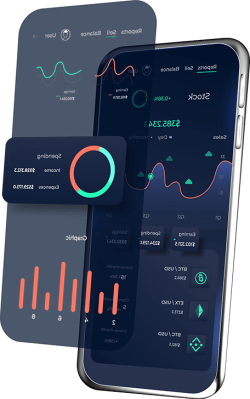How to Trade Forex
Learning to trade forex is one of the biggest and fastest moving markets in the world. Learning how to become a forex trader is one of the most challenging activities you can do. It requires a lot of time and effort in buiding a robust trading plan and applying your new trading strategies.

Better Ways to Learn Forex Trading
Learn and Prepare
Take advantage of available trading education materials to develop your own trading strategies, trading plan and methodology. Access trading videos, tutorials and webinars that focus on trading the different markets.

Activate and Start Trading
When you’re ready and confident, activate a real trading account and start trading according to your trading plan and goals.

How to Get Started
Open and fund a live trading account with Continental-FC and you will be ready to start trading.
Forex Market
The global forex market is recognised as the world’s largest and most liquid financial market with an estimated US$5 trillion in daily transactions. With millions of participants and massive volume of transactions every day, the FX market provides ongoing trade opportunities to traders across the globe. With long trading hours – FX trading is open 24 hours 5 days a week – across multiple FX centres around the world, traders can place trades in different time zones.

Use Reliable Sources of Information
Given the large volume of online trading resources including videos, you need to be careful and selective. Make sure you are only using or accessing information from reliable sources that are licensed and regulated by recognised regulatory authorities. A big part of success in trading is learning how to manage risk. There are internal and external factors that can affect the level of risk. Learning about these factors and putting in place strict risk management systems are vital to your trading success. Here are some of the risks you need to be aware of:
One of the fundamental rules in forex risk management is to not risk more than what you can afford to lose. Often, traders try to leverage their trading position to allow them to trade amounts exceeding their actual funds. This may have adverse results if a trade goes in the opposite direction, which can result in loses exceeding the value of the account.
Another critical element of forex risk is interest rate changes. Central banks are responsible for driving monetary policy within their countries which includes the setting of interest rates. It's important to know when these decisions are scheduled as they usually have an immediate effect on foreign exchange rates.
Another critical element of forex risk is interest rate changes. Central banks are responsible for driving monetary policy within their countries which includes the setting of interest rates. It's important to know when these decisions are scheduled as they usually have an immediate effect on foreign exchange rates.
Volatility risk describes the size and speed of fluctuations within the market. All markets have volatility, but in some instances the volatility can be extreme and unexpected. Usually during important news events we can see sharp and large movements in the market. Being aware of what causes these can help with your trading strategy.
Open your Continental-fc Live Account and start
trading today


